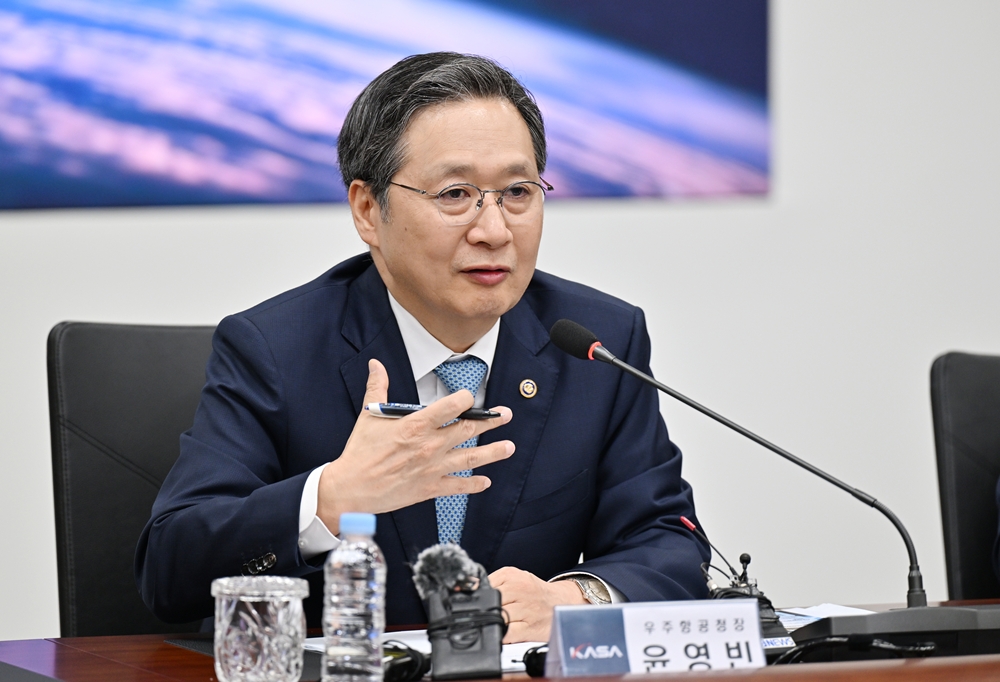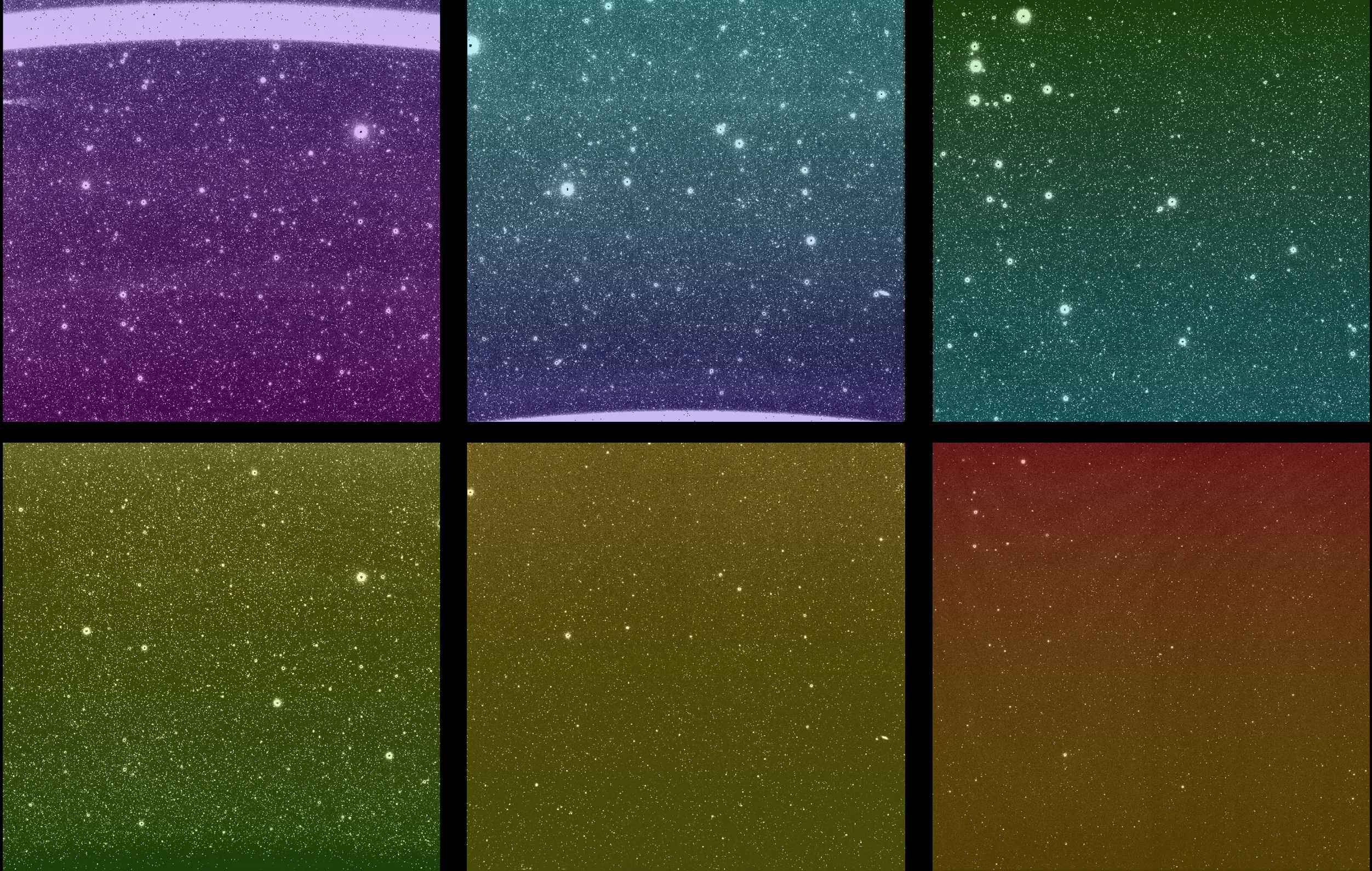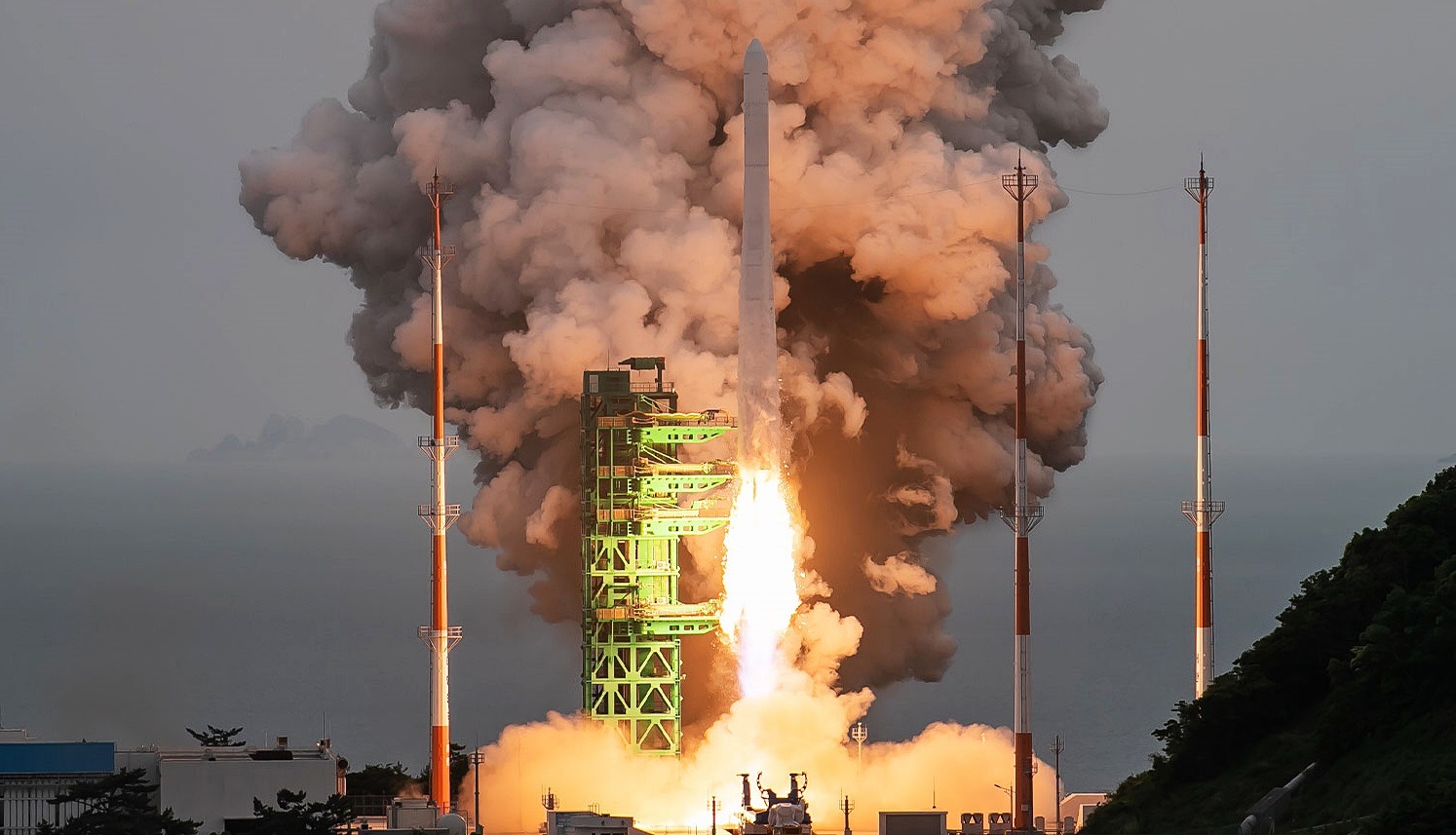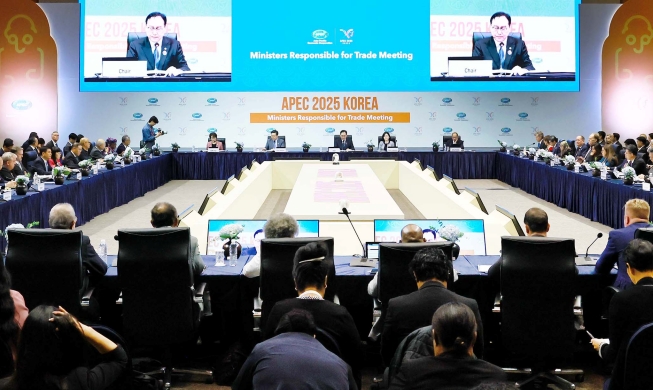
Korea AeroSpace Administration (KASA) Administrator Yoon Youngbin on May 21 speaks at a news conference held at his agency's headquarters in Sacheon, Gyeongsangnam-do Province. (KASA)
By Charles Audouin
The Korea AeroSpace Administration (KASA), in charge of the nation's space policy and securing core technologies, on May 27 marked its first anniversary.
Launched in May last year in Sacheon, Gyeongsangnam-do Province, as "Korea's NASA," KASA in its inaugural year laid its organizational foundation and set up a system to proceed with leading space projects.
KASA Administrator Yoon Youngbin on May 21 told a news conference at his agency's headquarters in Sacheon, Gyeongsangnam-do Province, "The opening of KASA was the start of a great journey for Korea to take a major leap to become a space powerhouse."
In its first year, KASA greatly expanded its organization and budget, going from 110 members at the time of launch to 281. Its budget for this year is KRW 964.9 billion, up 27% from last year.
KASA reorganized projects conducted by affiliate think tanks such as the Korea Aerospace Research Institute and Korea Astronomy and Space Science Institute to begin the development of core technologies for national strategic tasks like next-generation launch vehicles, the Korean Positioning System (KPS) and exploration of the moon.

The first photo taken by the Spectro-Photometer for the History of the Universe, Epoch of Reionization, and Ices Explorer (Spherex), a space telescope jointly developed by KASA and NASA, was released on April 2. (NASA / California Institute of Technology)
In its bid to raise international cooperation, KASA early this year held the fourth dialogue on the civil use of space with the U.S. and concluded business agreements with Germany, Italy and Uzbekistan. The agency's forums on cooperation with Saudi Arabia and the Czech Republic also sought to support Korean companies to advance overseas.
"We will create a mutually beneficial structure through which Korea learns from advanced countries via cooperation and exports its technology to developing states," Administrator Yoon said. "In this process, we will actively support private companies to jointly advance to the global stage."
KASA also saw success in its relations with NASA. Both agencies launched the solar coronagraph Codex and the space telescope Spherex, and plan to send into orbit next year CuteSat, a small satellite to gauge cosmic radiation.

Nuri (KSLV-II), a space rocket developed with domestic technology, on May 25, 2023, blasts off from Naro Space Center in Goheung-gun County, Jeollanam-do Province. (Korea Aerospace Research Institute)
Going forward, KASA will push ahead with mission strategies such as the development of ultra-low orbit and ultra-high resolution satellites, an L4 heliospheric space observatory and homegrown lunar lander.
The development of KPS, which provides ultra-precise location data on the Korean Peninsula, is slated for completion by 2035.
KASA is also speeding up its development of reusable launch vehicles with the goal of cutting launch costs to USD 2,500 per kg by 2035.
A contract on private transfer of technology for the domestically developed launch vehicle Nuri is slated to be concluded this year.
Administrator Yoon said, "Once the technology transfer to Hanwha Aerospace and the sixth launch are completed, Hanwha will be able to independently conduct operations from space launch and transportation from 2028."
KASA designated May 27, the day it was launched, as Aerospace Day and will host the event Aerospace Week nationwide until June 1.
This includes free admission to science museums, operation of astronomical observatories and events such as space camps and concerts to allow the public to experience space culture.
caudouin@korea.kr
